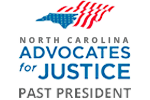YOUR LAWYERS.











Insurance Defense Lawyer – John Nunnally – Part 5
Insurance Defense Lawyer John Nunnally joins Law Talk with Bill Powers, discussing:
- The Practice of an Insurance Defense Lawyer
- Professionalism
- Trial Strategies
- Professional Development
In my opening, it may be something innocuous, not even really relevant. But it’s going to be something the evidence proves. So that at the end of my closing argument, I can say, “Didn’t I say that car was white? But didn’t I prove that car was white?” I don’t care if it’s innocuous. I want to be able to say, “I told you the facts would show you A, B, and C, and the facts showed you A, B and C,” instead of over promising. I’ve seen plaintiff’s attorneys who redo the whole trial and things may not go exactly as they expected. And you’ve really staked yourself out. You’re just giving me areas to attack when you do that.
Bill Powers: Right. It’s interesting because this is where I think there is a substantial similarity between insurance defense and criminal defense, where we do not bear a burden of proof for production, and we can sit back and listen. Now that’s unless you do a counter claim, where your counter suing the other side, where you may need to… I don’t know how often you do that. There may be instances where you do.
John Nunnally: Yeah, it’s occasional. But the main one I have more is contributory negligence. I have to prove contributory negligence. The burden of proof does fall on me on that one. But you’re right, I do get that advantage. I do get some time. I do think in some respects that gives us a little advantage, but also not in the… The jury is still fresh when the plan gets them, for the most part. I get them two or three days later. So I’m basically trying my case during the plaintiff’s case, which can get awkward at times, especially trying to admit evidence or not, that some evidence has not been admitted yet because I can’t admit it yet.
Bill Powers: Sure. I do that as well. In fact, more often than not, I will reserve my opening statement.
John Nunnally: That’s interesting.
Bill Powers: I do not like promising things that I don’t know will come out in the evidence. Evidence is not always clear what’s admissible or not admissible even. We see this more in criminal court maybe than in civil court.
John Nunnally: Yeah. You get that more. Motions in limine for defense or for a civil trial, you usually know pretty well what’s going to happen at that point, what he’s going to allow, to a degree. He may give you an indication or ask you to stay away from a topic he hasn’t decided on yet, so you have some idea. Our trials, I mean, between motions in limine and then during the jury selection, I mean, a lot of that occurs during the pretrial stuff. And during the pretrial stuff, the judge is finding out how close you are to settlement, pushing you along the way and kind of indicating…
It’s funny, I’ll tell another war story real quick. I had a trial where I was getting the sick shot, was just eating me alive down in Wilmington, on motions, etc. And he kept calling us in to talk us out of money. Finally, after like three days of trials, “I think this case is worth X. Can you get X?” And it was good bit more than on offer, but it wasn’t unreasonable out the realm of possibility. And then he goes, “You go try and get X. You go get your client to accept X, and see what we can do.” And I went and talked to my client, well, came back and said, “Yes, we’ll pay X.”
The plaintiff’s attorney came back, “No, we just can’t take that.” He goes, “What?” He was not… We go back into trial, I didn’t have to open my mouth. Anything I wanted suddenly was fine. All my objections were being sustained and he was going to make that plaintiff’s attorney’s life miserable now that he saw he was the unreasonable one, not me. After about half a day of it, plaintiff’s attorney again, “Is that offer still on the table?” So we ended up settling the case, and that was one where the judge drove that… And that happens a lot, but that’s getting back to…
It wasn’t an unreasonable settlement on either party. It was one where probably both sides were a little disappointed, which means a probably a good result because, at the end of the day, somebody was going to be very disappointed when that jury decided.
Bill Powers: Yeah, I’ve had judges that we’ll do a pre-trial chambers conference and they’ll say, “Mr. Powers, is your client fully aware of the consequences of a conviction, and no, I’m not required to follow what some other judge may have said or done.”
John Nunnally: It’s a pretty good indication.
Bill Powers: Well, and, see, I wish you all the best and I’m going to let you try your case. But let me tell you, I… Judges are getting a lot of discretion. So I like that, to tell you the truth. I’d rather know what I’m going into.
John Nunnally: Yeah, I don’t disagree. I don’t mind a judge pushing within reason. I mean, I’ve had some judges push too much where I’ve felt it was unfair, I mean. Just let the case be tried. I mean, let me try my case and treat me fairly. I don’t like seeing it any way. Some judges, I mean, you hear it all the time. They’re real [inaudible], or they act like they want to control everything or act all superior. And that gets irritating no matter how they do it.
Now, I don’t see that very often. It’s pretty rare. Most judges do try to do the right thing and do try to make fair rule and to let the facts fall where they may. But you occasionally run across one who, for some reason, decides that he’s the center of attention rather than just the referee guiding the process.
Bill Powers: I find that exceedingly rare now, maybe it’s because I’m older and-
John Nunnally: Yeah, I was wondering that too, maybe with all the gray hair.
Bill Powers: Right. And the other problem is, I was talking to a friend of mine the other day about this, but, John, unfortunately in our stage of career, we’re more on the high wire, the tight wire, whatever you want to call it. You’re getting these extraordinarily complicated cases that are not always crystal clear factually. Causality can be a real problem. You’d mentioned contributory negligence. It’s more than just contrib. There’s something called last clear chance. And we’re dealing with witnesses who everyone is doing their best, and everyone’s proceeding in good faith. But the human brain and observations can vary.
There could be a substantial difference between two people watching the same thing and describing it completely differently. And sometimes in those cases, I’ve found essentially, we just can’t work this out. We want to, we just can’t. There’s just a substantial difference between causality, or in a criminal case, identification or something like that.
John Nunnally: Well, you mentioned the criminal, and I will say, that is one aspect I’ve always liked about what I do. If I try a case and lose, I mean, basically the insurance company pays more than they wanted to pay. I go to bed at night not worrying that somebody is in jail because I didn’t do something. I’ve always admired your ability or other criminal defense attorney just to do what you do because the pressure on me, while it may be great, is nothing compared to the pressure that you guys face. Having handled just a few little assault cases and other minor criminal matters, the stress of those was just… And also domestic cases too. The stress I just thought was extraordinary. And I’ve always admired your ability to handle those type of cases because it’s a different world.
Bill Powers: I appreciate you saying that. I don’t know if it’s entirely true because, I’ll tell you, you do some professional negligence, and you and I are legal professionals. You represent other professionals and there’s like zero room for ever making a mistake, and you don’t want to ruin someone’s career.
John Nunnally: Oh yeah. I mean, those bother me as much as anything because it’s, yeah, their licensing. And even if you can keep their license, if they have something on it, it’s going to make it… Especially if you don’t feel they did anything wrong, there’s some technical reading of the rule, that can get very difficult because if they admit to some innocuous, little hand slap, well, then they’ve got something on the record now. And if they do something else in the future, it’s more problematic. And it’s also their livelihood. If they lose their license, it’s very difficult. But yeah, I know what you mean. That’s a good indicator. But again, even if it’s bad, they might lose the livelihood, but they’re still not locked up for number of years.
Bill Powers: I do a fair amount of DWI work in North Carolina, and DWI is sort of the emergency room of criminal charges. It crosses every socioeconomic status, every educational level, every age group. And the consequences, while a lot of people don’t go to jail, at least on the first offense, you can, by the way, but the consequences of a conviction from a job, insurance, it’s unbelievable how high the pressure is now for driving while impaired.
John Nunnally: Yeah. I’ve talked to, a few years ago, some of my criminal defense friends who do a lot of DWI who were saying it’s almost easier to do a murder case than it is a DWI, given the restrictions that are in the statutes now. But have you seen a reduction since Uber and Lyft and others have come around too?
Bill Powers: To some extent, yes. Yes. There’s several factors going on, and I would think it’d be a mistake to assume that there isn’t an Uber and Lyft factor, at least in larger Metro regions like Charlotte, Wake County. I don’t think it accounts, frankly, for the substantial drop in numbers in Mecklenburg County over the last 10 or 15 years. DWI has become more difficult to try though, because everyone assumes, well, why would you even take a chance if there’s Uber and Lyft available? I can tell you, almost without exception, I mean, I hate to be hyperbolic about this, but the vast, vast, vast majority of my clients say, “Well, I’m not in favor of DWI. I’m not in favor of drunk driving. I would never drunk drive,” until they get caught, until they get pulled over, and they’re surprised.
Contact Us
- Free Consultation
- 704-342-4357
Personal Injury Law
- Drunk Driver Accidents
- Car Accidents
- Passenger Injuries
- Rear End Collisions
- Subrogation and Insurance Issues
- Bicycle Accidents
- Negligence is not an Accident
- Are Recorded Statements Required?
- Carolina Commercial Vehicle Accidents
- Accidents with Police Cars and Ambulances
- Contributory Negligence in North Carolina
- Discovery Sanctions
Client Reviews
I am so fortunate to have had Bill Powers on my case. Upon our first meeting, Bill insisted that through the emotions of anger, sadness, confusion, and betrayal that I remain resilient. He was available to answer questions with researched, logical, truthful answers throughout our two-year stretch...
I contacted over 20 attorneys and Bill Powers was the only one that got back to me and was willing to help. He was kind and professional. He helped me get answers that I have been trying to get for years. I am so thankful for all his help and would recommend him easily. Simply FANTASTIC.
Bill Powers contacted me very shortly after I submitted an inquiry. He is incredibly knowledgeable about laws and all the requirements in North Carolina. When working with him, he patiently answered any and all questions I had in great detail. I always had the feeling he was looking to help ME, and...
Let Us Help You!
- 1 Over 28 Years of Experience
- 2 Results Oriented
- 3 We Will Fight for You

